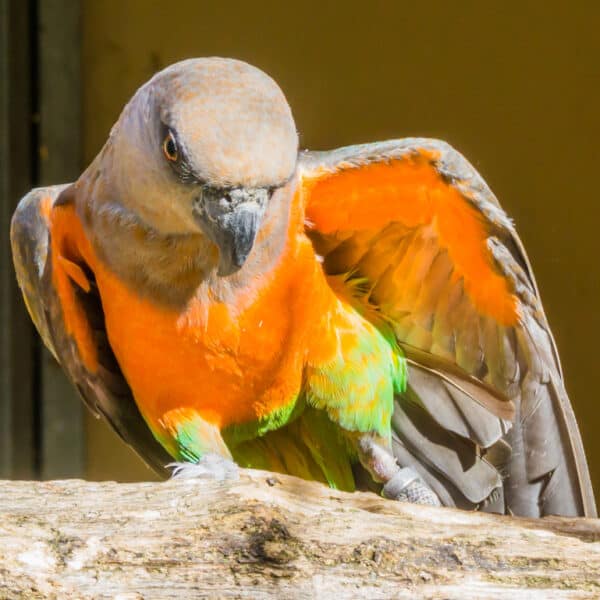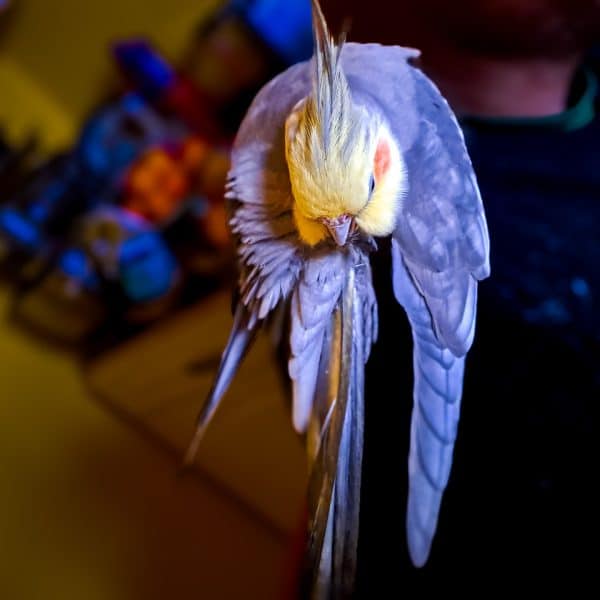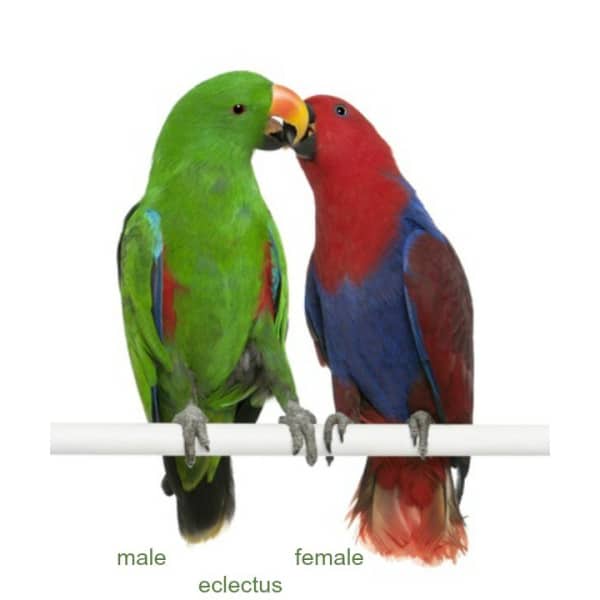
Does It Matter What Sex My Bird Is as Long as He or She Knows Its Name?
Last Updated on by Mitch Rezman
Why is DNA so VERY important even for your non-breeding parrot?
About 20% of parrots, like budgies, eclectus, and cockatiels that are sexually dimorphic.
That means that the gender of the bird can be identified by physical differences.
In the case of budgies and cockatiels, they have to reach near-adulthood to exhibit differences while Eclectus are readily identifiable upon feathering out the first time since females are red and blue while males are green.
The sexual organs of birds are inside the body, making it impossible to tell gender by visually checking organs such as is done with dogs and cats.
Some breeders claim to be able to identify the gender of parrots that don’t exhibit differences visibly based on factors such as the spread of pelvic bones upon reaching breeding age, the shape of head and behavior.
Perhaps some breeders are reasonably accurate, most are about as accurate as tossing a coin as a means of determining gender.
There’s only one sure way to tell the gender of a bird that has no visible gender differences.
DNA testing is the answer.
Unlike years past when surgical sexing was the only means to be sure of gender — an invasive, often expensive, and as with all invasive surgery, risky.
Today only a few feathers need be plucked or a nail clipped short enough to bleed a few drops and, carefully following instructions from the inexpensive DNA collection kit, the sample is sent into the lab by mail.
A short time later, you receive an email stating the gender of the bird.
When you get a bird, you may not think that its gender is important.
You name it “Jack” or “Susie” and the bird comes to know its name.
It doesn’t know if the name is a boy’s name or a girl’s name and doesn’t care.
It simply wants to be called and provided attention and live, no matter what gender name you call it.
Other people choose non-gender-based names like Mango, Kiwi, Popcorn, Pepper, Dusty, JoJo, or any of a million other names that can refer to either gender.
Yet, it is very important to know the gender of your bird, even if you do not have any intention of ever breeding the bird. There are several reasons that make this knowledge important.
female lovebirds make strips
male lovebirds make confetti
Right now you may have only one bird, but you can’t foresee the future. You could end up inheriting a bird or birds or choose to rescue a couple of birds in the future.
Having one male bird housed with two hens can cause the hens to decide to fight for the male’s attention.
I’ve seen hens with cracked or broken beaks, broken legs, or other physical damage, some permanent or even fatal, caused by having an odd number of hens with males.
Usually having the same number of males as hens work just fine since each hen can bond with a male, but that extra hen can be real trouble.
If there are more males than hens, the same scenario can happen, too.
If you own a female bird it is not necessary to have a male bird present for the female’s instincts to cause her to produce eggs.
Popcorn’s (Mitch and Catherine’s cockatiel) is a case in point because she was recently cured of chronic egg laying with no male present by using the 72-hour continual light solution.
If a female bird develops a bump under her tail, it is likely she is developing an egg and needs vitamin and mineral support as well as extra calcium in order to be healthy enough to (hopefully) safely pass the egg.
Exercise is also important for females so that they are strong enough should they develop an egg since, just as with humans, reproducing requires a lot of really strong muscle contractions to successfully push out the reproductive egg (or baby in humans).
If a female bird is not strong enough or does not have a good enough diet to successfully develop a normal hard eggshell and successfully pass it from her body, the condition is known as egg binding.
There are a few home treatments that may help her pass the egg such as applying a non-oily lubricant like Ky Jelly to her cloaca (where her poop or egg will come out — basically like an anus).
Most times, however, unless you have extensive experience with egg binding, an emergency visit to the vet is required.
The big problem with having a hen and not being aware of her gender is that many birds in our homes eat entirely too much and get far too little exercise.
They then become obese to the point of being unhealthy and you may never notice the egg bump and the egg can actually become lost inside her body, resulting in the need for emergency vet care, possibly surgery, and potential death.
It helps your vet in treating your bird to know its gender for certain.
For example, a bump under the tail in a female, always makes a vet think of egg bump and to look for egg binding symptoms.
A male with a similar bump under the tail will immediately be tested for a growth such as a cyst or cancer or an internal organ problem.
The vet can find the solution faster, possibly resulting in a better outcome — saving the bird — instead of wasting time trying to learn the gender of the bird during which the health problem could become critical or fatal.
You plan to own your bird forever.
But forever really only means your lifetime.
Big parrots like macaws, cockatoos, and even African Grey’s and Amazons are known to be able of living over 100 years with really good care and the best environment.
An African Grey was documented some time ago as having lived over 112 years — in Alaska no less.
So what happens to your bird should you no longer be able to care for it due to age, health or another reason?
The person or persons who accept your bird into their home will be grateful to know the gender of the bird.
Perhaps they have birds of the same or similar species and need to know if reproduction could be a possibility — either a desirable or undesirable outcome.
It is far easier to place a parrot in a loving home when gender is known.
With the cost of the DNA testing kit being so low and the knowledge so important, it is worth the investment to know the gender of your bird.
That doesn’t mean that if “Jack” turns out to be female that you should rename her to “Jill” because she probably already knows her name.
Birds don’t care about gender-specific names, they just want a name that is spoken in a loving way.
You should, however, learn if Jack is a she or a he so you can provide him or her with the best possible care.
Written by Windy City Parrot’s Expert Staff
Your Zygodactyl Footnote
Author Profile

Latest entries
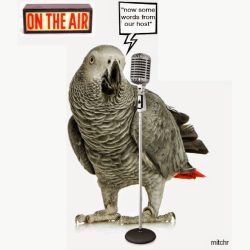 Bird & Parrot CareJune 20, 2025Understanding the Best Way to Use Prevue Pets Mimic Me Voice Trainer
Bird & Parrot CareJune 20, 2025Understanding the Best Way to Use Prevue Pets Mimic Me Voice Trainer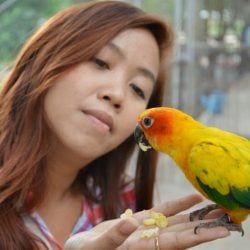 Bird BehaviorJune 6, 2025How Do I Keep My Parrot From Dumping His Food Every Day?
Bird BehaviorJune 6, 2025How Do I Keep My Parrot From Dumping His Food Every Day?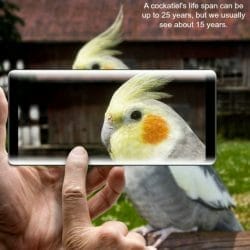 Birds & LightingMay 16, 2025I Am Seeking Clarity About Lighting for My Birds Cage
Birds & LightingMay 16, 2025I Am Seeking Clarity About Lighting for My Birds Cage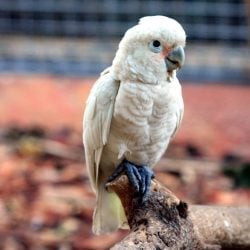 Bird RescueApril 29, 2025How Do We Re-Home a 17 yr Goffin Cockatoo?
Bird RescueApril 29, 2025How Do We Re-Home a 17 yr Goffin Cockatoo?

